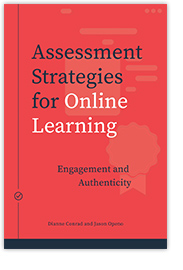 |
| picture by Giulia Forsythe |
Learning Management System (LMS)
Learning Management Systems (LMS, also related to Content Management or Course Management Systems) come in many variations, but generally they offer a digital environment to facilitate, support and design online or blended instruction. an LMS offers content structuring options (put specific modules online, sometimes integrate a learning path into those courses), quiz-options (including a question-database with a variety of quiz-options), and communication services between the learners, the facilitators, the course managers ... or all of the learning stakeholders.The LMS is pre-programmed. In some cases this means the complete system is programmed (e.g. Blackboard, WIZiq), and you - as a course provider - can only customize specific features, but in other cases you can customize a big part of the system (due to open source code), including some programming that you do yourself (e.g. Drupal, Moodle). Some smaller LMSs offer a more specialized and valuable option, e.g. Curatr which emphasizes the social learning factor. Some LMS also include course libraries, or you - the institute - can build an open, LMS supported library to offer support to your learners.
Normally these systems are self-contained, but with options to integrate other tools to align the LMS with contemporary learning realities (e.g. integrate instagram, twitter). Although some LMS are free, you need to consider the cost of server space, programming some features, supporting all users, and keeping the system up and running 24.7.
Who uses it: learners, teachers, trainers, course coordinators, ... each on their own level. Normally user rights can be allocated within the LMS. Depending on the role, the LMS will offer a different experience (back-end mostly for course-delivery people, and front-end for the learner).
Important features to keep in mind while choosing a LMS: security features are very important as a LMS generates a lot of learner data and communications traffic. A mobile app is a must, test it on multiple devices to estimate the quality of the app. Offline features will make life much easier for learners. SCORM options make life easier for any instructional designer, and xAPI features will allow the educators/facilitators to make meaningful analysis from all the learner data.
IDVmatrix stamp


